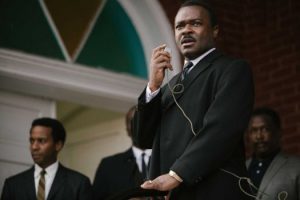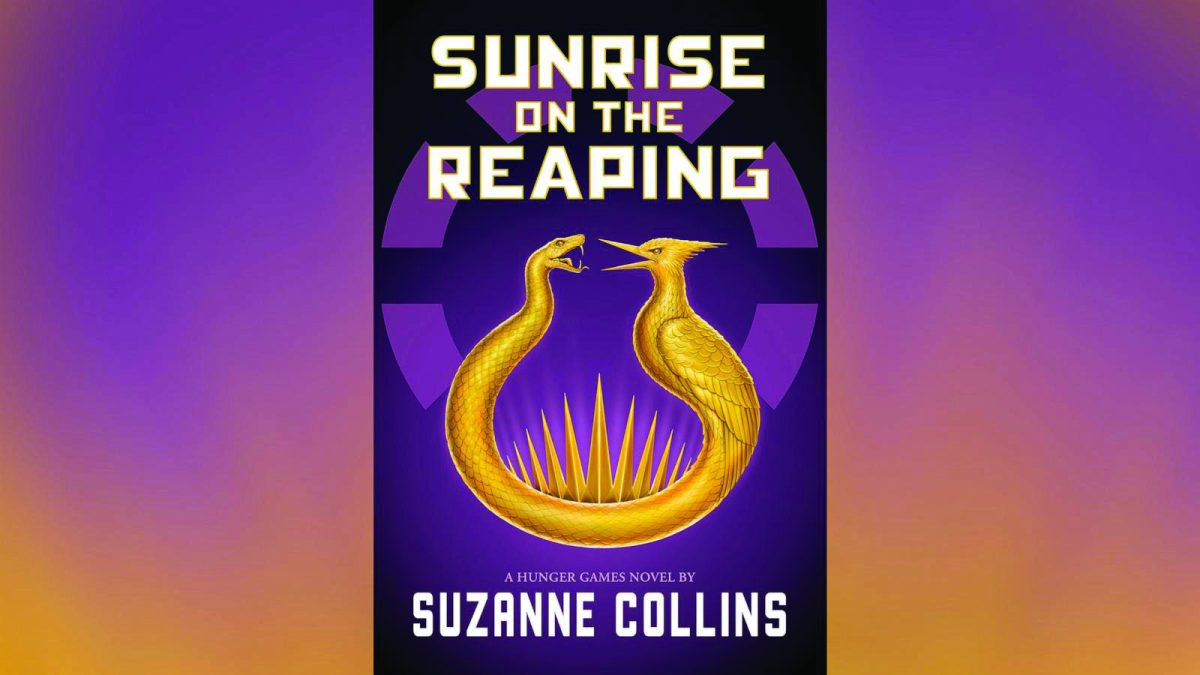History sure does repeat itself. This past fall, the media has been exclusively focused on cases of supposed police brutality towards blacks in Ferguson, Missouri and Staten Island. While I have no problem with cops doing their jobs, as they did in these cases, and like to think that modern day police officers have the rationality to only use force when they find it necessary, these incidents have brought into light that racially routed tensions still exist in contemporary America.

The recent art house film Selma is a very relevant film that depicts history yet is allegorical of the contemporary condition of racial tensions. Set in the 1960s, Selma tells the true story of the effort of Martin Luther King Jr. and his Southern Christian Leadership Conference fighting to give blacks the right to vote in the Deep South.
Selma has an ensemble cast yet is led by mostly unknowns, with David Oyelowo playing Martin Luther King Junior. Oyelowo plays an excellent Dr. King, portraying an ambitious spiritual leader who captivates everyone on screen and in the audience when he gives his many speeches.
Selma really hammers in the point that King truly wanted to achieve his goals through nonviolent and rationally thought out efforts. King’s education and morality are what led him to inspire a nation, not violent acts of retaliation against law enforcers as has been seen in recent cases of racial tensions. While portraying a respectable leader, Selma also shows King’s own inner demons and self-doubts while he is dealing with the weight of the Black community’s turmoil on his shoulders.
Aside from Oyelowo, the supporting cast is fantastic. Tom Wilkinson plays Lyndon B. Johnson, the president at this time of national crisis who has to balance the will of King’s plight for black equality while having to work with extremist Southern politicians who are set minded to never grant the vote. Wilkinson really shows the stresses presidents have of having to answer to dozens of different interest groups and make everyone happy. Oprah portrays Annie Lee Cooper, a civil rights activist who really shows the meaning of courage when all the odds are against you. Not a formally trained actor, Oprah does a wonderful job, despite having only gotten the role as she is a producer of this film.
Aside from the performances, the screenplay is incredibly well written, making these characters pop out of the movie and seem like the real people they were. The cinematography of the freedom marches truly convey how intimidating it was to stand up to the police and do the right thing. This movie could easily have condescended to a sappy and romanticized depiction of the civil rights movement. Yet in remaining subtle and keeping the characters grounded, Selma truly is a moving film.
As the economist Victor Rosansky said, less is more, and by leaving more unsaid, one can make their own judgments and inferences which leads to a deeper and more personal understanding of matters. While watching police beating and shooting peaceful protestors, I was reminded of The Hunger Games: Catching Fire, where a dystopian police state executes citizens on sight for acts as little as stepping out of line at a ceremony. It is scary to think that parts of the United States were like this only fifty years ago, when my parents were kids.
Selma boasts amazing performances, particularly Oyelowo, and why he was not nominated for an Oscar I’ll never know. I do not believe it has any to do with race, as the Academy has often honored blacks with awards, such as 12 Years a Slave earning blacks awards in acting, writing, and producing. Yet a great performance is a great performance, and does not have to be validated by a one foot piece of metal.
Selma remains relevant by keeping in mind that racial tensions can be solved by peaceful means, not by ignorant protests, vandalizing property or cop killings, as has happened in these past few months. King’s Southern Christian Leadership Council had a very classy way of achieving their goals, and if more were like them, the world would be a better place. Selma is a very important film in that it captures one of the most iconic chapters in American history far better than any other film has portrayed the Civil Rights Movement. The only hesitation I can think of is that Selma would not lose too much away from the big screen, yet as good films are sparsely released in January, Selma is an excellent choice of film for this time of year. After all, MLK weekend was just a week ago.










